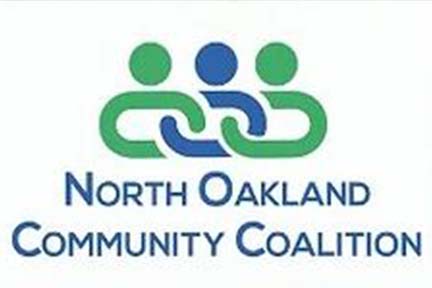| Here are a few of this week’s stories from the Michigan Department of Natural Resources:
See other news releases, Showcasing the DNR stories, photos and other resources at Michigan.gov/DNRPressRoom.
PHOTO FOLDER: Larger, higher-res versions of some of the images used below, and others, are available in this folder.

A long holiday weekend means many people will enjoy one of the fastest-growing recreation activities in Michigan – off-road vehicle riding. If you’ll be on a quad, side-by-side, dirt bike or other type of ORV, the DNR wants everyone to Ride Right to ensure you ride again.
According to 2023 statewide ORV crash data, 93% of ORV fatalities could have been prevented. These crashes were primarily due to excessive speed and a lack of helmet/seat belt use.
“Always ride within your and the machine’s capabilities,” said Cpl. Mike Hearn, DNR law enforcement ORV and snowmobile specialist. “When operators ride too fast, they are more likely to lose control when they hit even the smallest bump, try to make turns or stop. Riding sober and at a safe speed are the best ways to stay safe.”
All ORV operators are urged to Ride Right and keep these important safety tips in mind:
- Operate within the limits of your ORV and your own capabilities.
- Ride at a safe speed.
- Ride sober.
- Ride on the right side of the trail.
- Keep lights on when riding.
- Always wear a helmet.
|

Conservation officers will have an increased presence on Michigan waterways July 4-6 as part of Operation Dry Water, a national law enforcement campaign to promote sober boating.
There’s good reason for the effort. According to the most recent U.S. Coast Guard report, alcohol is among the top 10 primary factors in recreational boater deaths.
Alcohol impairs a boater’s judgment, balance, vision and reaction time, and can increase fatigue and susceptibility to the effects of cold-water immersion. Sun, wind, noise, vibration and motion – elements common to the boating environment – intensify the side effects of alcohol, drugs and some medications.
The top factors in fatal boating accidents (when the cause is known) remain the same from previous years:
- Operator inattention.
- Improper lookout.
- Operator inexperience.
- Excessive speed.
- Machine failure.
Data shows that while boating-related fatalities have decreased, the proportion of drowning victims not wearing a life jacket increased, from 85% in 2022 to 87% in 2023.
It’s important to wear a life jacket and ride with a sober operator who has successfully completed an accredited boater safety course.
For more information, including more boater safety resources, visit Michigan.gov/Boating.
|

There are a variety of opportunities to help the DNR take care of Michigan’s natural and cultural resources this month. Here are a few ways to lend a hand.
Volunteer at state park stewardship workdays
Several state parks in southern Michigan will host stewardship workdays, where volunteers are needed to help remove invasive plants that threaten high-quality ecosystems.
Workdays will take place at:
- Warren Dunes State Park (Berrien County), 10 a.m. to noon Tuesday, July 9, and Saturday, July 20.
- Muskegon State Park (Muskegon County), 10 a.m. to noon Saturday, July 13, and Friday, July 19.
- Yankee Springs Recreation Area (Barry County), 10 a.m. to 12:30 p.m. Sunday, July 14.
- Island Lake Recreation Area (Livingston County), 10 a.m. to 1 p.m. Saturday, July 20.
- Fort Custer Recreation Area (Kalamazoo County), 9 a.m. to noon Sunday, July 21.
- Brighton Recreation Area (Livingston County), 10 a.m. to 1 p.m. Sunday, July 21.
- Waterloo Recreation Area (Washtenaw County), 10 a.m. to 1 p.m. Saturday, July 27.
- Pinckney Recreation Area (Washtenaw County), 10 a.m. to 1 p.m. Sunday, July 28.
Help clean up the Manistee River
Michigan United Conservation Clubs’ On the Ground volunteer program will partner with the DNR, Steelhead Manifesto and the U.S. Forest Service for its annual Manistee River cleanup event, 9 a.m. to noon Saturday, July 13.
Volunteers will gather at the High Bridge Boat Launch in Brethren (Manistee County), then head out either on the water by boat or along the riverbanks by foot to various locations and remove garbage to improve the river’s aquatic ecosystem. MUCC will provide work gloves, trash grabbers and trash bags for volunteers, as well as lunch and an appreciation gift for all registered volunteers.
Give us your input on your state forests
|
 It’s vital for everyone to do their part to protect native resources from invasive species. During Aquatic Invasive Species Awareness Week, June 30 – July 6, learn what you can do to prevent aquatic invasive species from taking hold in your favorite places. It’s vital for everyone to do their part to protect native resources from invasive species. During Aquatic Invasive Species Awareness Week, June 30 – July 6, learn what you can do to prevent aquatic invasive species from taking hold in your favorite places.
In case you missed it, over 50 outreach events are planned for boat landings across the state this week. The boat landing events – emphasizing the need to Clean, Drain, Dry boats whenever they come out of the water, and dispose of any unwanted bait in the trash – are part of the 11th Annual AIS Landing Blitz in which local partners such as lake associations and cooperative invasive species management areas give boaters tips to prevent the spread of AIS and comply with laws for recreational boating.
The regional Landing Blitz website allows you to search for an event near you. Similar AIS Landing Blitz events will be held in each of the Great Lakes states and Canadian provinces.
Read the full release for more information. |
 See more pictures by Michigan state parks photo ambassadors at Instagram.com/MiStateParks. For more on the program, call Stephanie Yancer at 989-274-6182. (This photo is by Brandon Johnson, for the Michigan DNR, on the Rifle River in Ogemaw County). See more pictures by Michigan state parks photo ambassadors at Instagram.com/MiStateParks. For more on the program, call Stephanie Yancer at 989-274-6182. (This photo is by Brandon Johnson, for the Michigan DNR, on the Rifle River in Ogemaw County).
|




















 Whether your Fourth of July plans include fireworks, camping, off-road vehicle riding or free time to work around the yard, take care to keep from sparking a wildfire.
Whether your Fourth of July plans include fireworks, camping, off-road vehicle riding or free time to work around the yard, take care to keep from sparking a wildfire.






 It’s vital for everyone to do their part to protect native resources from invasive species. During Aquatic Invasive Species Awareness Week, June 30 – July 6, learn what you can do to prevent aquatic invasive species from taking hold in your favorite places.
It’s vital for everyone to do their part to protect native resources from invasive species. During Aquatic Invasive Species Awareness Week, June 30 – July 6, learn what you can do to prevent aquatic invasive species from taking hold in your favorite places.
 See more pictures by
See more pictures by 
